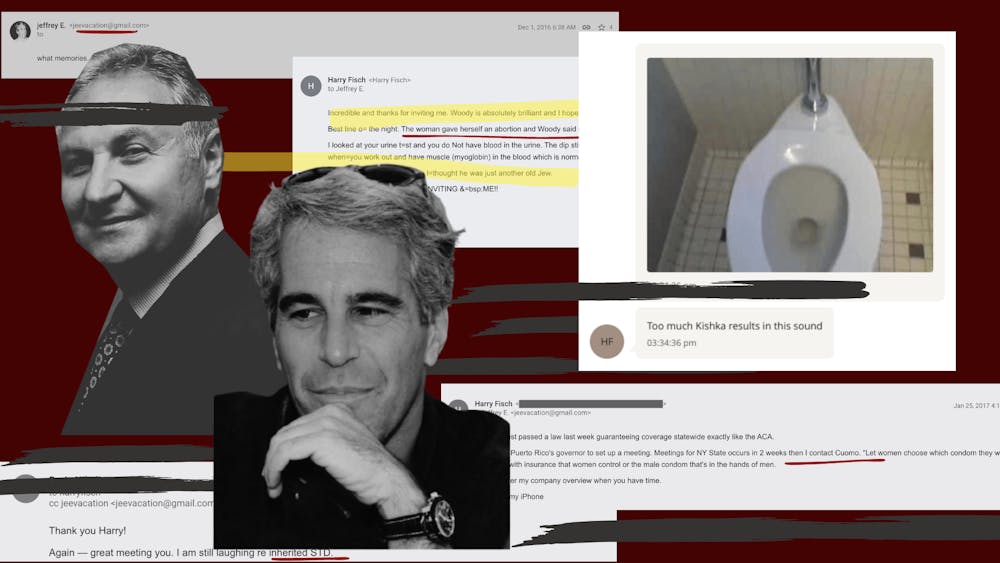From tackling the economics of Uber to diving deep into Latin American politics, the College Scholar students plan to push the boundaries of Cornell’s academic offerings.
The newest 18 members of the college scholars program began their independent courses of study this semester. Students in the niche College of Arts and Sciences program design their own major, entering the program as sophomores and completing a thesis by their senior year.
Once students commit to the college scholar major, they are no longer bound by the College of Arts and Sciences’ distribution requirements.
Instead, their interdisciplinary majors require them to take a variety of courses related to their theses, guided by a faculty advisory team. Students also take a seminar course on research methods led by Prof. Michael Goldstein, psychology, the director of the program.
“It’s a little hard to tell people what I’m studying,” Ben Feldman ’22 told the Sun. “‘How leaders shape cultures’ is the best question to explain what I want to study.”
Feldman described his project as a combination between government and anthropology, born out of a goal to “change our culture for the better.”
“Coming into Cornell, I was dead set on being a politician and being elected president,” Feldman said. “Since applying and getting into the college scholar program, I have a much clearer idea of what I want to study and a much less coherent idea of what I want to do after that.”
The freedom to take interesting classes from a “holistic perspective” helped Feldman approach his questions.
This flexibility is a hallmark of the program, and something that draws in many of the majors.
Luz Dybner ’22, who originally entered Cornell as a government major, found that she also loved her Spanish classes. Since the University only offers a Latin American studies minor, Dybner thought the College Scholar program would be a “really good option” to pursue her interests.
She is focusing her studies on the “symbiotic relationship” between politics and culture in Latin America, inspired by a trip to visit her grandparents in Argentina. There, she saw a “living, powerful, palpable political culture that pervaded through all elements of Latin American life,” which will inform her studies.
Vanessa Olguin ’22 similarly hopes to combine two of her passions in her project by finding the intersection between international relations and environmental sustainability sciences.
“The climate crisis transcends borders,” Olguin said. “It’s something that hits every nation, and so what I’m trying to look at is how the climate crisis will play into international relations, specifically looking at how the climate crisis will affect the citizens of certain nations.”
Her self-designed curriculum includes courses such as BSOC 2201: Society and Natural Resources and NTRES 3311: Environmental Governance. Post-Cornell, Olguin plans to continue her studies into graduate school and eventually work in diplomacy for the U.S. government.
Aaron Buchwald’s ’22 college scholars project was also informed by a Cornell class — CS 2850: Networks. Afterwards, he became interested in examining “the network economies and the platform economics behind Uber and Lyft and how they are competing with each other.”
In order to develop his skills, Buchwald is beginning his research with a smaller project, studying which types of Facebook posts generate the most discussion. He plans to continue taking courses in government, computer science, history and economics.
“I’m very nerdy,” Buchwald said. “I like software and I like natural language processing and network analysis, so playing around with them and then potentially having real world effect on how people use social media would be really, really great.”
The program’s 18 sophomores represent less than two percent of the over 1,000 students in the College of Arts and Sciences’ class of 2022. However, Goldstein said that he hopes to expand the program to support double the number of students.
“[The modern education system] understands the world by chopping it up into little pieces,” Goldstein said. “The whole point of the college scholar program is to put the world back together again by doing research and thinking that spans those traditional disciplinary boundaries.”











